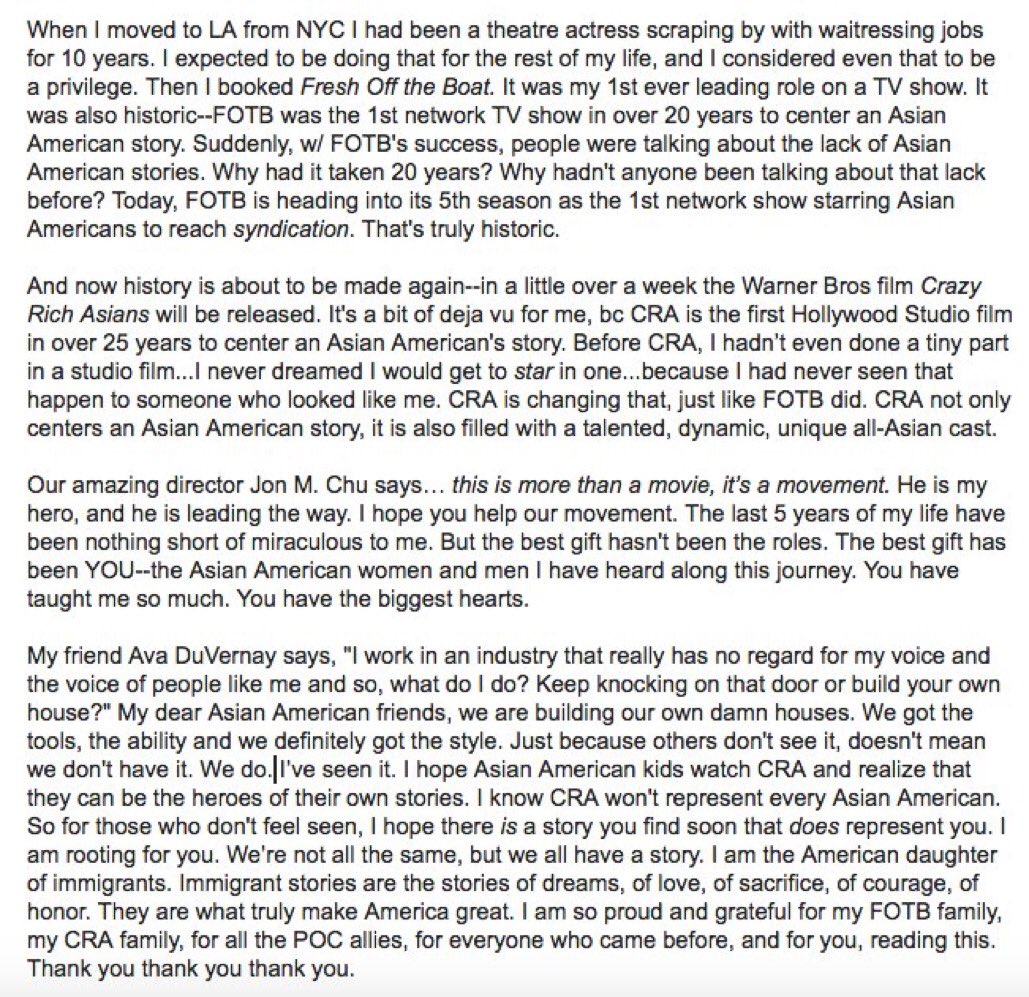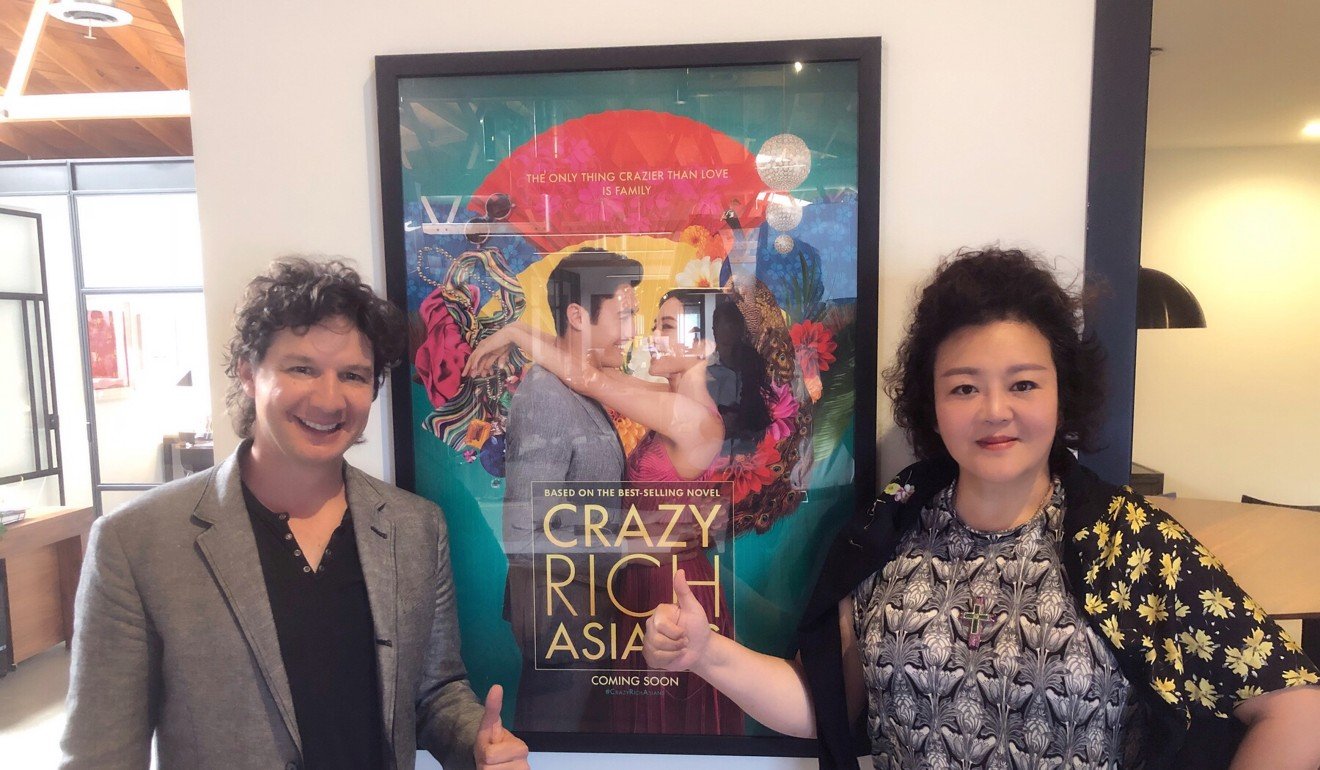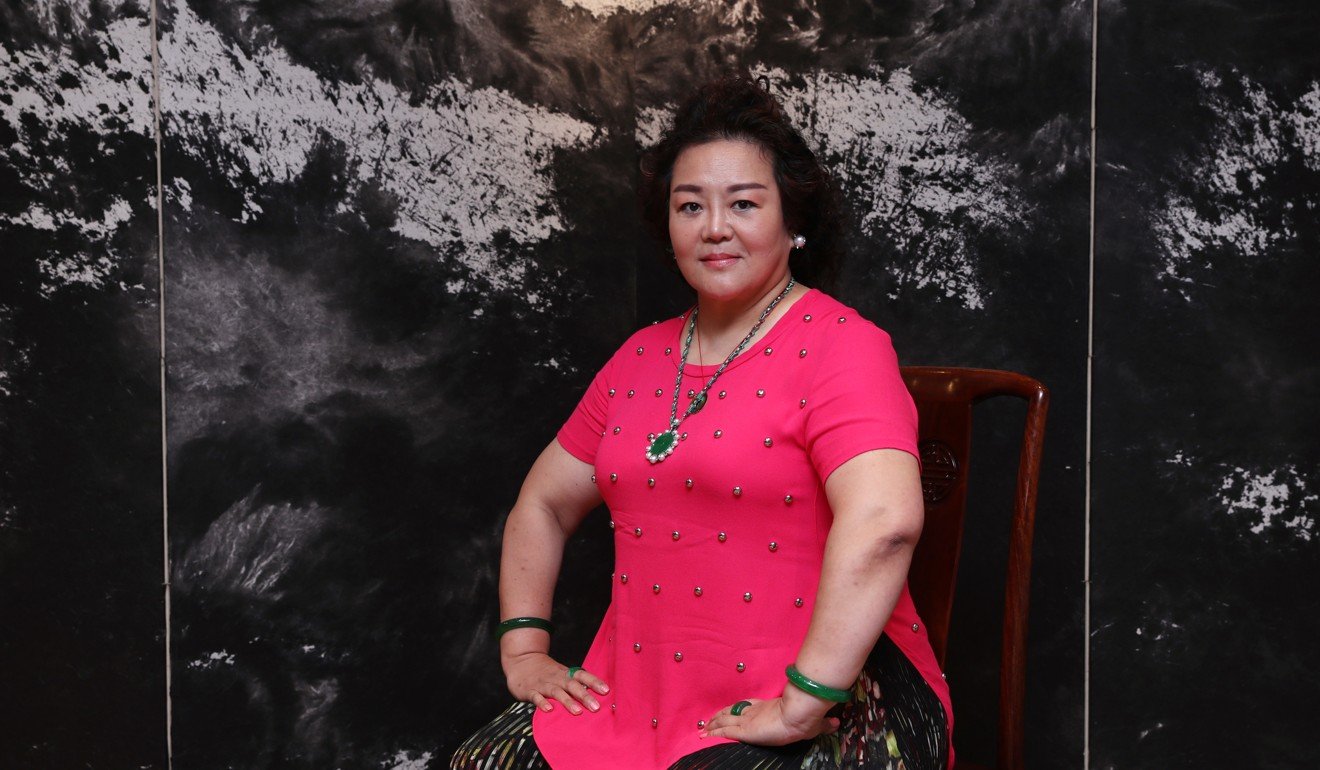Hendrik_2000
Lieutenant General
I had seen Crazy Rich Asian, big disappointment. The opening started well with Michelle Yeoh but ended up more like a African American comedy.
Well it generate a lot of buzz in the media circle and gross $34 million sofar and box office no1
Rotten tomatoes audience score of 93%. It get rave review from major entertaining critic of NYT, Washington post , CBS etc. the Asian American community galvanize support for this film One Korean brother bought the whole movie to be distributed free to all asian who want to see this movie
It also change the perception of Asian American and validate self perception for Asian American kid
Well now that I read the story line it make it credible story basically love story between 2 different social milieu which is authentic and recurrent theme in Overseas Chinese play or drama. As well it depict the value difference between Chinese american and Asian Chinese Where Asian emphasize filial duty, sacrifice for the family and American concept of passion and freedom of choice
John Chu from Bay area and Kevin Kwan was offered 7 digit dollars for the right of the movies by Netflix but the reject it in order to show the it at big screen and raise the awareness of Asian talent and representation in the media Quite a sacrifice
As well it give the chance for first time an all Asia cast after 25 years
But it groundbreaking because it depict Asian as normal people instead of caricature or stereo type of Kungfu fighter, nerd , or Ninja killer.
Here is one of the best comment on youtube
the fact that it’s a story about the upper class actually makes it excellent representation in that it’s a subversion from the western media trope that asians are hardworking model minority middle-class citizens. even just depicting an asian family (who lives in asia!!!) as outlandishly rich and glamourous is something quite groundbreaking bc roles like that are almost exclusively written about and given to white people. also, the story is based on the author’s own personal experience of bringing his girlfriend to meet his crazy rich family so it’s not supposed to be completely relatable! it’s his lifestyle that he wanted to portray and showcase to his readers and now viewers a scope into his life in a fictional way. though it doesn’t represent asians as a whole, the film shows that there is a difference between mainland asians and asian americans and what expectations are put on mainland/immigrant children which i felt like can still resonate with an asian audience.
Listen to intelligent and excellent comment by Michelle Yeo at 12:0
Here is the story
The moment ‘Crazy Rich Asians’ said so much without saying anything at all
Trailer: 'Crazy Rich Asians'
0:54 / 2:31
“Crazy Rich Asians” follows Rachel Chu (Constance Wu) as she accompanies her longtime boyfriend, Nick Young (Henry Golding), to his best friend's wedding. (Warner Bros. Pictures)
By
Writer/editor
August 20 at 1:00 PM
This post contains spoilers about “Crazy Rich Asians.”
There’s a lot to love about “Crazy Rich Asians.”
It’s a delightful, with the rare-for-Hollywood . The scenery and costumes . Awkwafina is a , the best friend of Rachel Chu (Constance Wu). The connection between the lead characters is palpable and believable. The between Rachel and boyfriend Nick Young’s (Henry Golding) mother, Eleanor (Michelle Yeoh), is so captivating and that it made me want to take up the game.
As I left the theater, the moment that stuck with me the most was how Nick’s proposal to Rachel resolved the film’s central tension without saying a word. Sure, a marriage proposal after a big fight is entirely predictable. It fits neatly in the rom-com formula, with Nick running through the airport to get there in time — as many a rom-com lead has done before him.
So what makes this proposal different? Well, the big conflict of the movie is Eleanor does not approve of Rachel, an economics professor and daughter of a single mother. Though Rachel and Nick are both of Chinese descent, they come from different worlds: Nick comes from extreme wealth, in a family where marriage is treated as a business merger. Rachel, on the other hand, is a poor American, guided more by passion and free will than filial responsibility.
Earlier in the film, Eleanor tells Rachel she will never be enough for Nick, explaining she too was an outsider in the Young family and has spent her entire life feeling as if she does not measure up. Eleanor was such an unsuitable choice for her husband, she tells Rachel, that he could not propose with a family ring. Instead, he had one made: a gorgeous emerald flanked by two diamonds. Not exactly a story of a couple toiling in economic hardship, but in this film every costume and every earns its weight.

From left, Michelle Yoeh as Eleanor, Henry Golding as Nick and Constance Wu as Rachel in “Crazy Rich Asian.” (Sanja Bucko/Warner Bros. Pictures)
After Eleanor tells that story, Nick and Rachel go their separate ways for Colin and Araminta’s bachelor and bachelorette parties, where Rachel again gets the message she is an outsider. Like his father, Nick does not plan to propose with a family ring: He has already had one made for Rachel, which he shows Colin during the guys’ escape from Colin’s crazy-lavish bachelor party. However, when Nick uses that ring, Rachel turns him down, saying she cannot take him away from his family. Rather than just slink back to America, Rachel asks Eleanor to join her for a mah-jongg game, during which she explains why she rejected Nick and that his future wife’s identity will still be the result of a choice by Rachel, who’s a “poor, raised-by-a-single-mother, low-class immigrant nobody.” The exchange is the last we see of Rachel and Eleanor on-screen together.
However, when Nick proposes for the second time, on a crowded airplane with passengers all around them, he does so not with the ring he had made for Rachel but with Eleanor’s emerald ring. In a movie with lots of jaw-droppingly beautiful jewels, it was in this moment I actually gasped. Through this one gesture, and the meaning the audience and the characters already knew this ring held, Nick was telling Rachel: I accept you. My family accepts you. You are enough. You are more than enough.
Of course, saying something like those words would have been excessively cheesy, even for a rom-com. Which is why I so appreciated they let the ring say it all on its own. The ring had a way of honoring Rachel’s outsider status and a welcoming of it all in one. The reveal reminded me of those rare and special times between loved ones when words are unnecessary, when an understanding look or a tender handhold — or, in this case, a piece of jewelry — says everything without saying anything at all. The past between you provides the meaning, and the gesture speaks louder than words ever could.
Last edited:







